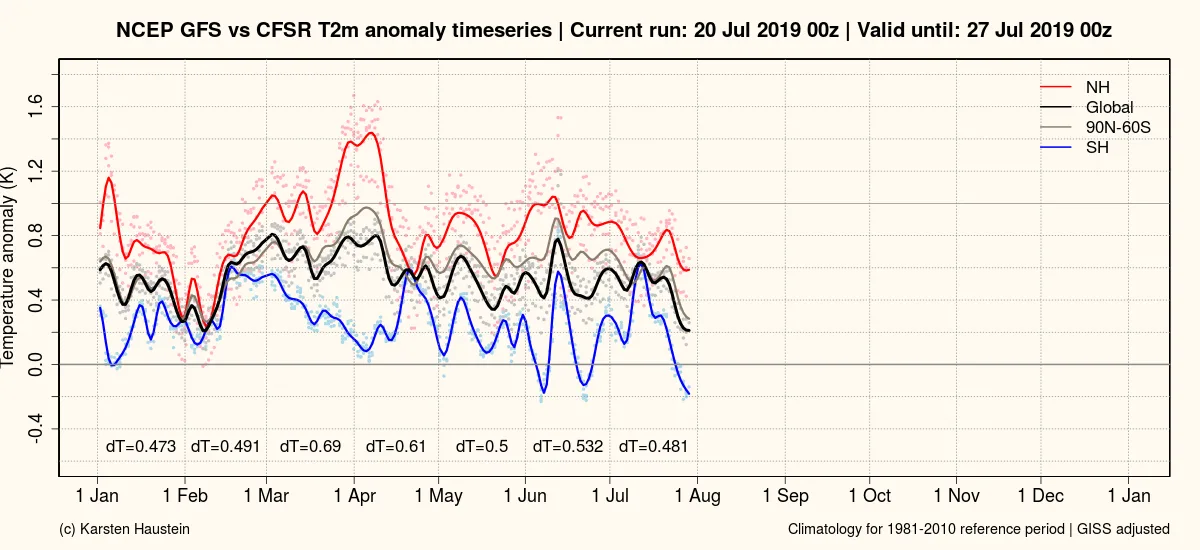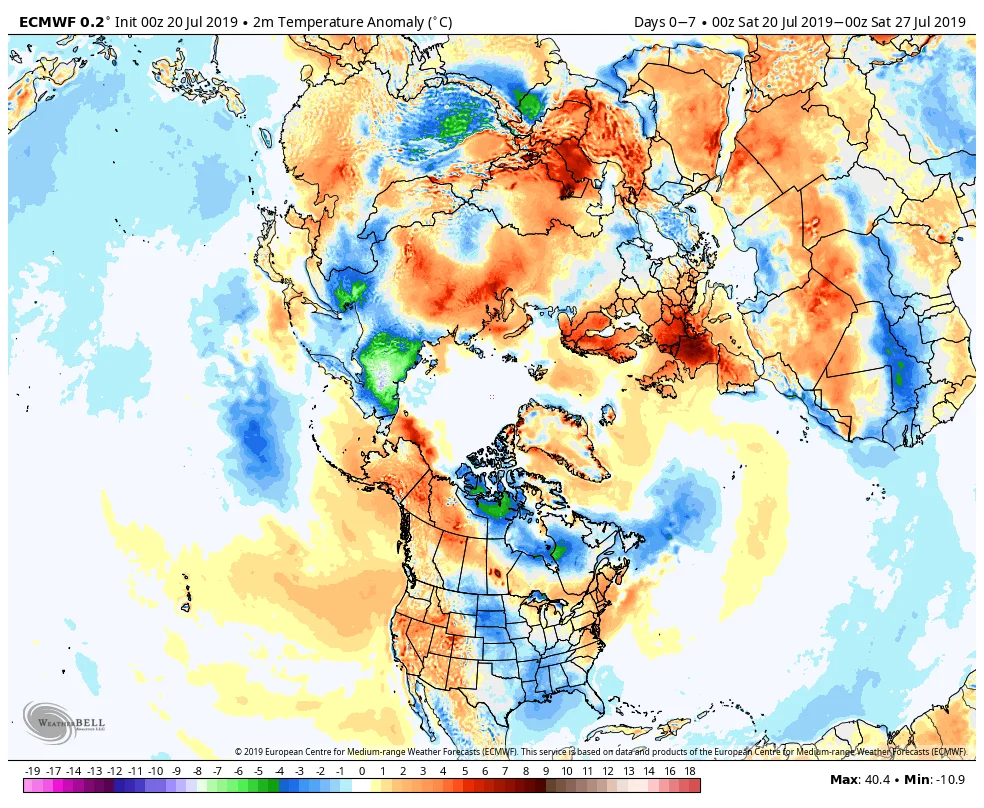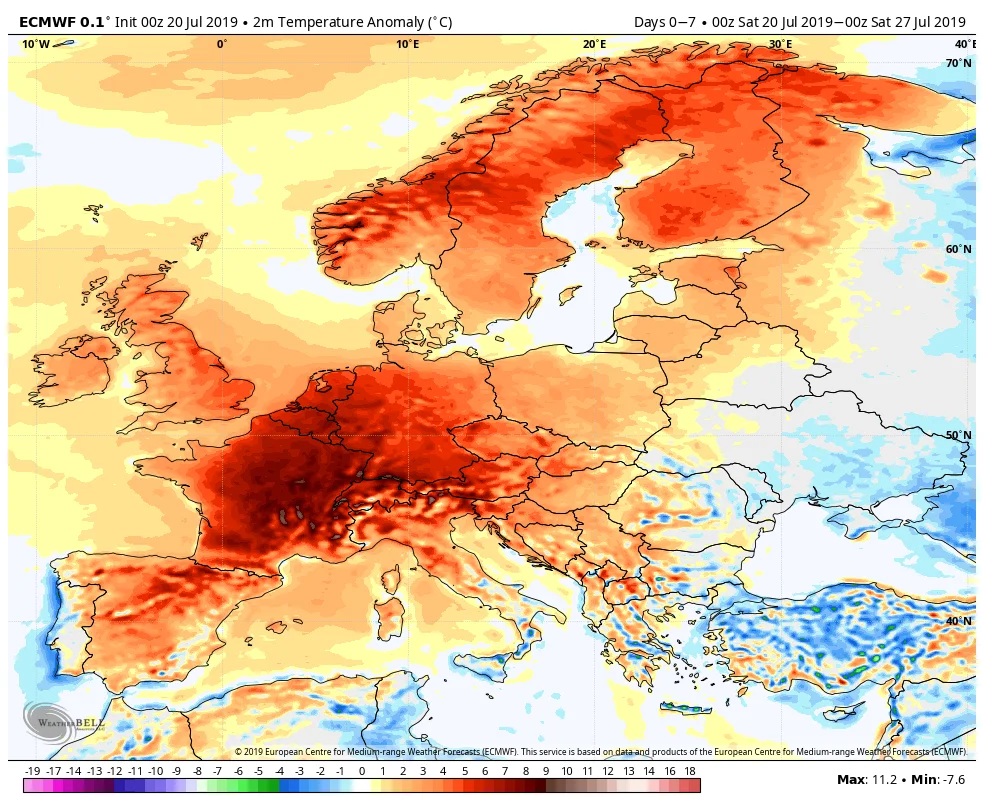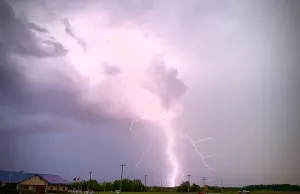
July set to smash record as hottest month in temperature history
Another scorching month on tap for the globe
The world today is warmer than humans have experienced since temperature records began back in the late nineteenth century. The past two weeks have been exceptionally warm across many areas of the planet, and this last week of July is forecast to bring new record highs to many areas of the northern hemisphere, from Europe to North America and Asia.
Summer revealed! Visit our Complete Guide to Summer 2019 for an in-depth look at the Summer Forecast, tips to plan for it and much more
Of the many recent temperature anomalies, perhaps the most remarkable was in the Canadian Arctic community of Alert, Nunavut, which reached 21ºC on July 14th, when temperatures this time of year are usually 3 to 6 degrees above freezing. Meanwhile, drought has been devastating in southeast India around Chennai, thousands were evacuated from campsites in southern France due to scorching high temperatures, and the list goes on.
According Karsten Haustein, a climate scientist at the University of Oxford, temperature calculations indicate that, if current trends continue, this July will top the current record for highest monthly average, set back in 2017. This comes just a few weeks after measuring the warmest June on record. Other climate scientists, like Michael Mann, director of the Earth Science Center at Pennsylvania State University, mentioned via Twitter that "July is the warmest month of the year globally. If this July turns out to be the warmest July, it will the warmest month ever measured on Earth."

Image courtesy Karsten Haustein
Mann estimated that the chance of a new July record occurring in 2019 is about 50 per cent. Looking ahead, it looks like records will continually be broken. In an article he published in Nature with other authors a few years back, he shows how the record warm streaks measured in recent years cannot be explained without taking into account human-caused planetary warming. Those warm streaks are certain to not only continue but to worsen if we continue to burn fossil fuels and warm the planet.
8 of the 10 warmest years have occurred in the last decade and, according to NOAA, the first 6 months of 2019 indicate that 2019 has a 99.9 per cent chance of becoming one of the top five warmest years. Scientists don't rule out that 2019 could be a podium year, taking the number two or three spot as one of the warmest.

Image courtesy Weather Bell
The warmest of all years was 2016, but then a strong El Niño was present in the equatorial Pacific Ocean. This year a weak El Niño was also present in the same region but, if it had been stronger, we would probably be facing the warmest of all years on record.

Image courtesy Weather Bell
Much of late July's positive heat anomaly will come from Europe, where temperatures from Spain and Portugal, across France, Germany, and into Scandinavia are expected to be on average anywhere from 5 to 10ºC above normal values for this time of the year. This extra heat comes at the worst of all times, as the last stretch of the month is the warmest of the year across many areas of the continent, and millions of residents will have to cope with scorching temperatures.










